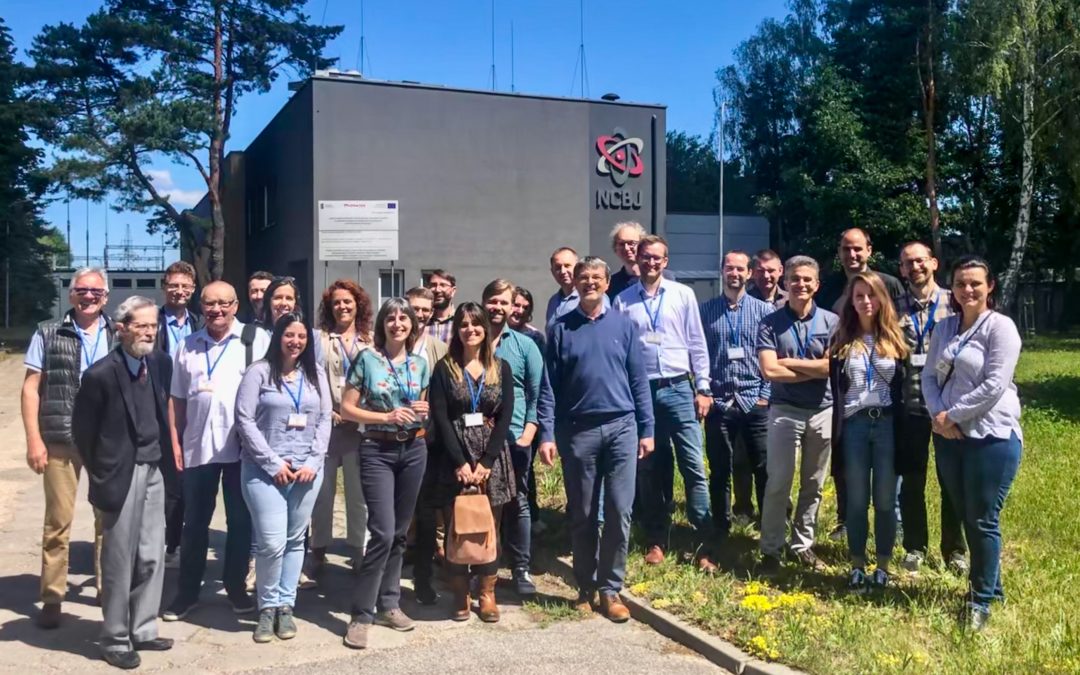The REVaMP project held its second management meeting on 21-22 June at the National Nuclear Research Centre in Otwock (Poland). This was an opportunity for all staff to meet face-to-face and share challenges and experiences.
The project consortium, made up of 16 industrial and scientific partners from Poland, Germany and Spain, presented the progress of the work carried out over the last few months of research. Each partner was able to present its progress and the actions planned for the next six months were discussed.
To complete the meeting days, the Radiation Detectors and Plasma Diagnostics Division of the NCBJ (TJ3) organised visits to the laboratories of the Radiation Detectors and Plasma Diagnostics Division (DTJ-TJ3), showing the experimental setup dedicated to REVaMP as a neutron generator, the prototype of one of the sensors, as well as a general presentation of the scientific activity of the TJ3.
The Radiation Detectors and Plasma Diagnostics Division of the NCKJ (TJ3), as leader of work package 3, is responsible for the development, adaptation and planning of new sensors, based on neutron activation analysis, for the characterisation of metallic scrap in terms of its chemical composition.
The main objective of the REVaMP project (Retrofitting Equipment for Efficient Use Of VAriable Feedstock In Metal Making Processes) is to develop, adapt and apply new retrofitting technologies to cope with the increasing variability and to ensure an efficient use of raw materials in terms of materials and energy. This will be demonstrated in an exemplary way in three different use cases in the metallurgical industry: electrical and oxygen steel making, aluminium refining and lead recycling.
